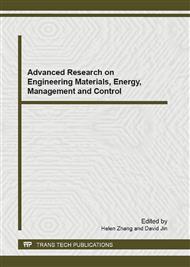p.1075
p.1080
p.1083
p.1088
p.1093
p.1097
p.1102
p.1107
p.1112
Soft-Switching Boost Half-Bridge Converter with High Voltage Gain and Low Input Current Ripple
Abstract:
A soft-switching boost half-bridge converter with high voltage gain and low input current ripple is proposed in this paper. In the proposed converter, a coupled inductor is used at the boost converter stage to reduce the input current ripple. The half-bridge converter stage provides soft-switching operation and high voltage gain. Also, the reverse-recovery problem of output diodes is significantly alleviated by utilizing the leakage inductance of the transformer. Due to the soft-switching operation of all switching devices, the switching loss is significantly reduced and the high efficiency is obtained. The feasibility and performance of the proposed converter were verified on an experimental prototype
Info:
Periodical:
Pages:
1093-1096
Citation:
Online since:
January 2012
Authors:
Price:
Сopyright:
© 2012 Trans Tech Publications Ltd. All Rights Reserved
Share:
Citation:


